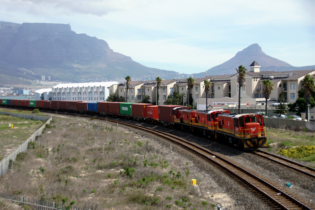In the 2010 edition of the biennial Logistics Performance Index (LPI), Botswana was ranked 134th out of 155 countries with researchers grouping it among the year’s “10 most significant under-performers”.
The index, produced through a global survey of logistics companies and executives, measures on-the-ground trade logistics performance helping national leaders, policymakers and private sector traders understand the challenges they and their trading partners face in reducing barriers to international commerce. Countries are ranked according to their performance over six key logistics indicators which include customs, infrastructure, international shipments, tracking and tracing as well as timeliness. This year’s LPI released last week indicates that Botswana boosted its performance across several categories, being ranked 48th out of 155 countries in terms of customs and 58th out of 155 for timeliness, both massive improvements from 2010. In terms of the efficiency of the clearance process by border control agencies, Botswana’s ranking of 48th globally, was the third best in Africa, only falling behind South Africa and Tunisia. By comparison, regional peers such as Namibia, Zimbabwe and Lesotho were ranked 54th, 105th and 143th respectively out of the 155 countries surveyed. In terms of timeliness or the frequency with which shipments reach the consignee within the scheduled delivery time, Botswana’s ranking of 58th was the fifth best in Africa behind South Africa, Tunisia, Benin and Mauritius. Botswana’s ranking in the timeliness indicator in the 2012 LPI is remarkable as the country was ranked 123th in the 2012 survey. The LPI 2012 ranked regional peers such as Zimbabwe, Lesotho and Namibia 71th, 131th and 144th respectively in the same category.Botswana’s ranking sparkled across other indicators as well with a 59-country jump to 60th in the 2012 LPI in terms of the quality of trade and transported-related infrastructure such as railroads, roads and information technology.
Botswana also jumped 44 places up the LPI 2012 in terms of the competence and quality of logistics services such as transport operators and customs brokers. The country was also able to significantly improve its rankings under the tracking and tracing indicator, rising from position 99 in 2010 to 81th in this year’s LPI. The indicator measures a country’s ability to track and trace consignments. Analysts attribute Botswana’s improved performance across all indicators in this year’s survey to government’s continued commitment to heavy infrastructural investment such as roads and airports, as well as ongoing financial support to trade-related parastatals such as the Botswana Railways. Part of the investment also involved the installation of the state of the art X-ray scanners that have cut consignment inspection times from eight hours to only three minutes. World Bank researchers involved in this year’s LPI said infrastructure had helped narrow the performance gap between poor and rich countries in the survey. “In the 2012 LPI, infrastructure stands out as the chief driver of progress, with the modest convergence since 2007 (when the LPI began) explained by a perceived improvement in the infrastructure of low and middle income countries,” the researchers said in the foreword to the index. “The quality and availability of trade-related infrastructure, especially roads, still constrains logistics performance in developing countries, especially for countries with the lowest incomes.” Local analysts said Botswana’s improved performance is also due to the Ministry of Trade and Industry’s policy-level interventions such as the red-tape slashing initiative aimed at enhancing the country’s international competitiveness. LPI researchers said greater trade integration within countries was critical. “Efficient border management and the coordination of the agencies involved in border clearance are more critical now than ever,” the researchers said. “A comprehensive approach is needed to reform border management, with attention to all the relevant sectors and agencies.”





